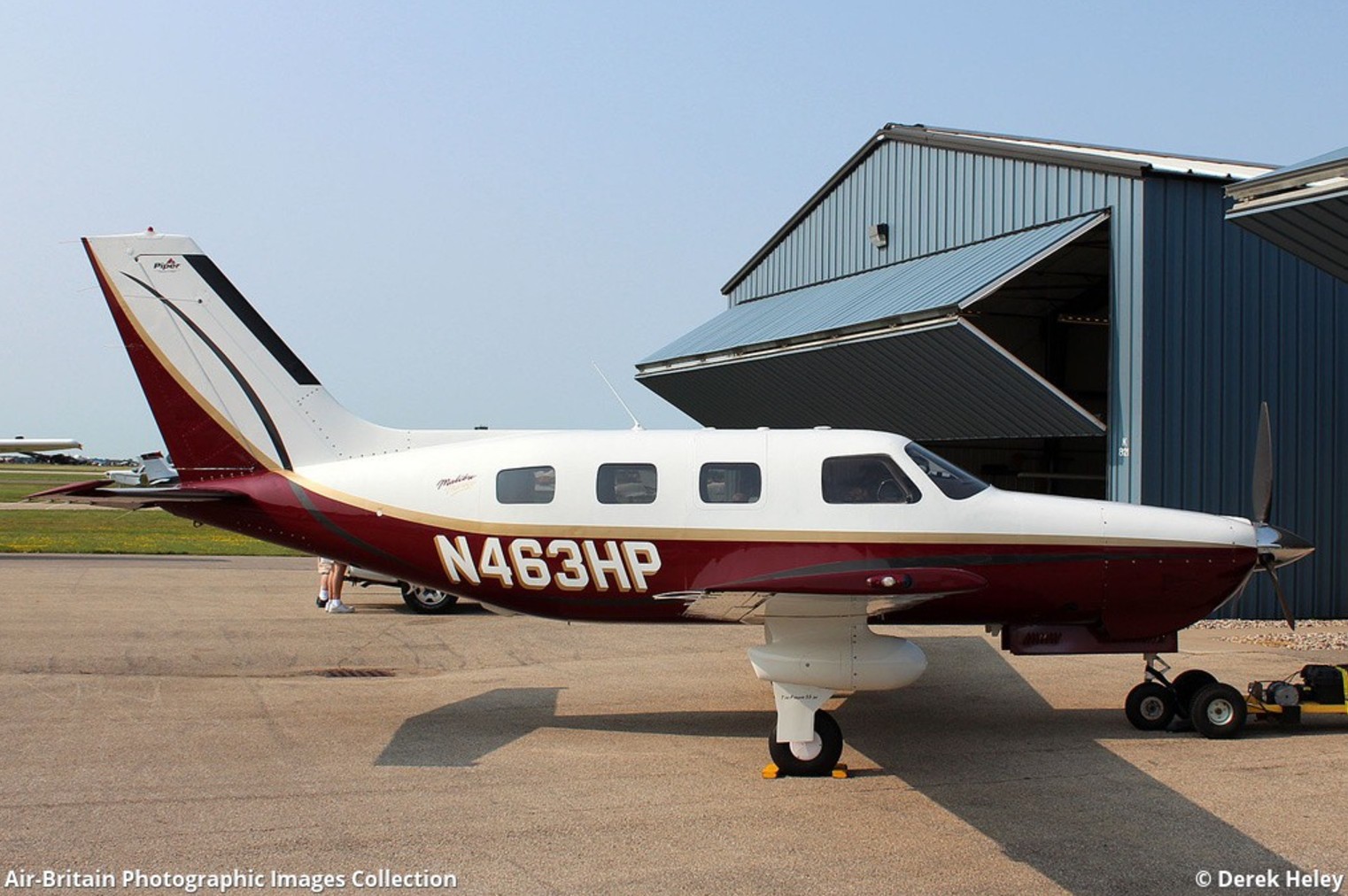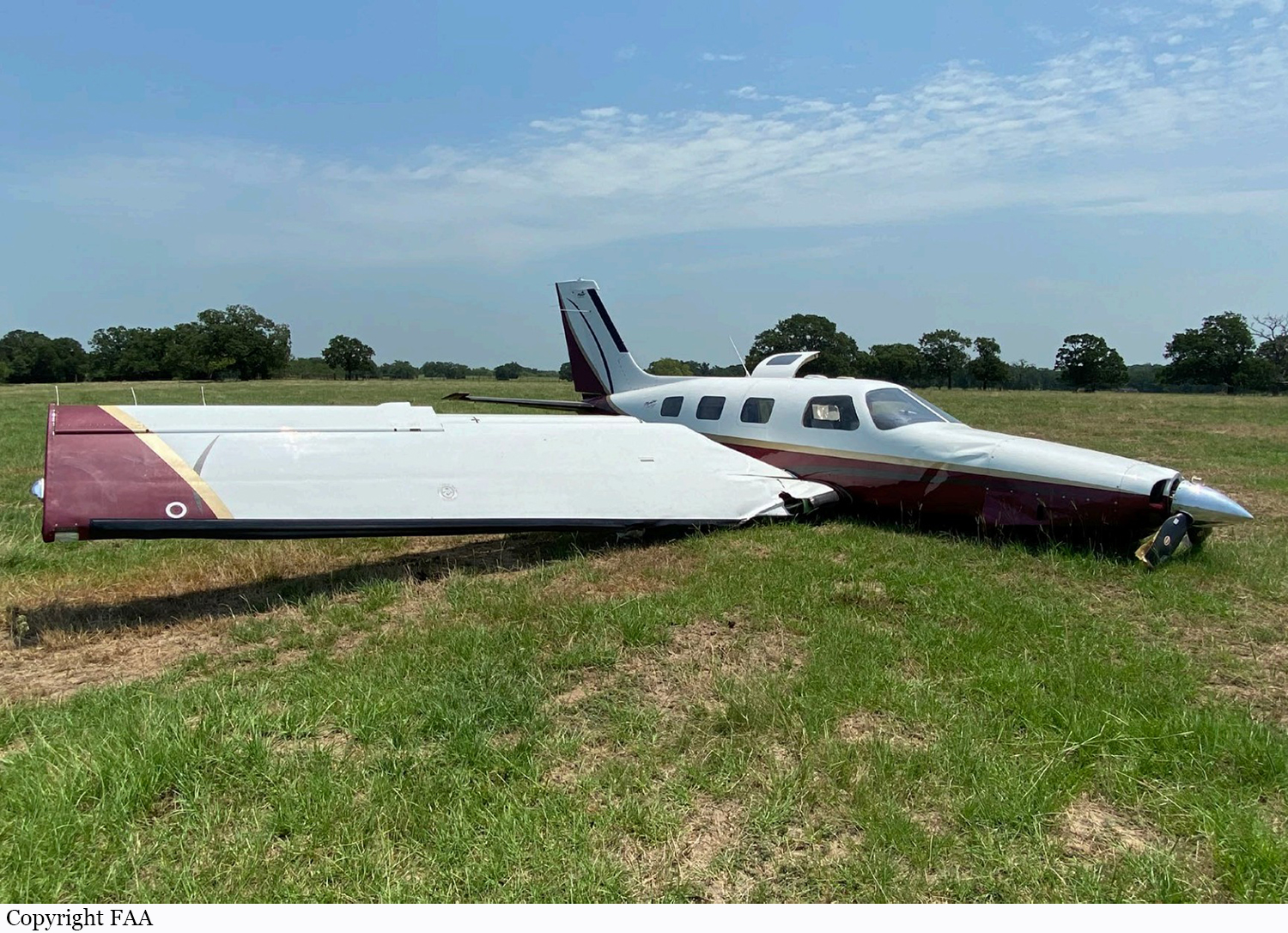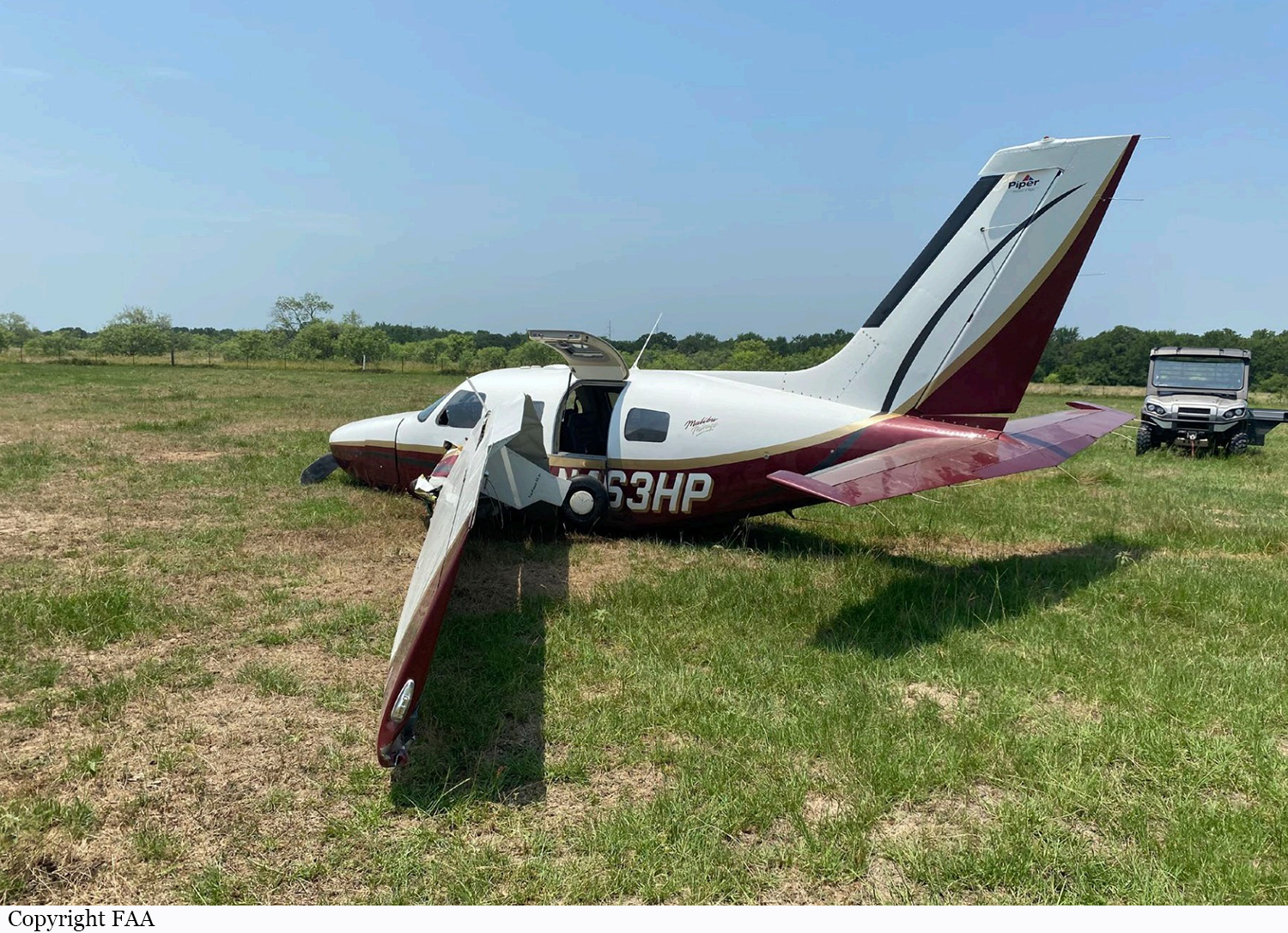Crash of a Piper PA-46-350P Malibu Mirage in College Station
Date & Time:
Jun 18, 2023 at 0843 LT
Registration:
N463HP
Survivors:
Yes
Schedule:
College Station – Anderson
MSN:
46-36335
YOM:
2002
Crew on board:
1
Crew fatalities:
Pax on board:
0
Pax fatalities:
Other fatalities:
Total fatalities:
0
Circumstances:
While climbing the airplane to cruise altitude after takeoff, the pilot observed an increase in engine oil temperature above the normal range and requested to return to the departure airport. While receiving vectors for an instrument approach, the pilot saw smoke in the cabin and the engine lost total power. Unable to glide to any runway, the pilot selected a field for the forced landing, during which the airplane sustained substantial damage to the wings and fuselage. Postaccident examination revealed that about 2 quarts of oil remained in the engine, and the recovered oil displayed evidence of metal contamination. There was evidence of an oil leak in the engine compartment and along the lower fuselage. There was evidence of a crankcase fracture near the oil dip stick port; however, a laboratory examination determined the fracture to be consistent with overload and likely due to impact-related damage. The engine exhibited no evidence of any loose or disconnected oil lines. The oil filter was removed, and the filter material was found to be saturated with metallic particles. The oil suction screen plug, located on the oil sump, was not secured with safety wire as required per the manufacturer’s maintenance manual. There was no evidence that the plug or required safety wire was damaged by other objects. The oil suction screen plug was found to be loose, with engine oil observed below the oil suction screen plug. The crush washer behind the oil screen plug was intact and exhibited no damage. Laboratory analysis of the metallic debris recovered from the oil suction screen was consistent with connecting rod material as well as steel from fittings, fasteners, and brackets. The metallic debris found in the recovered oil, oil filter, and oil suction screen was likely due to mechanical damage associated with oil starvation. Eleven days before the accident flight, the pilot observed decreased engine manifold pressure and a partial loss of engine power. He diverted to an airport, where he had the turbocharger replaced by an aviation mechanic. In addition to replacing the turbocharger, the mechanic also drained and replaced the engine oil, which included removal and reinstallation of the oil suction screen plug. The loss of engine power was likely due to a loss of oil during the flight that led to oil starvation within the engine. The loose oil suction screen plug, the absence of safety wire on the plug, and the evidence of an oil leak beneath the plug were consistent with the mechanic’s failure to properly secure the oil suction screen plug during recent maintenance.
Probable cause:
The mechanic’s failure to properly secure the oil suction screen plug during recent maintenance, which resulted in an oil leak and subsequent loss of engine power due to oil starvation.
Final Report:


